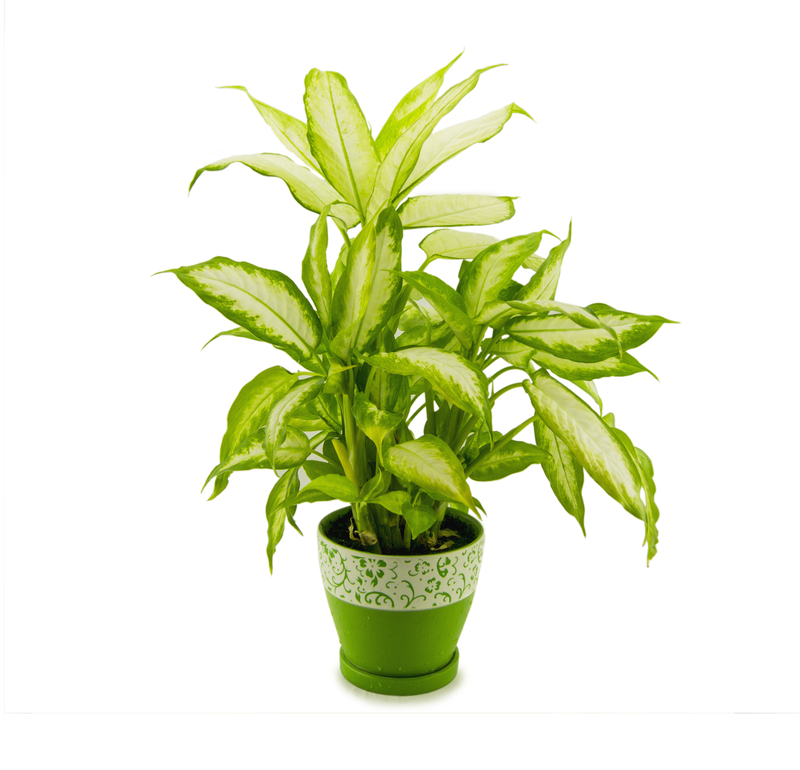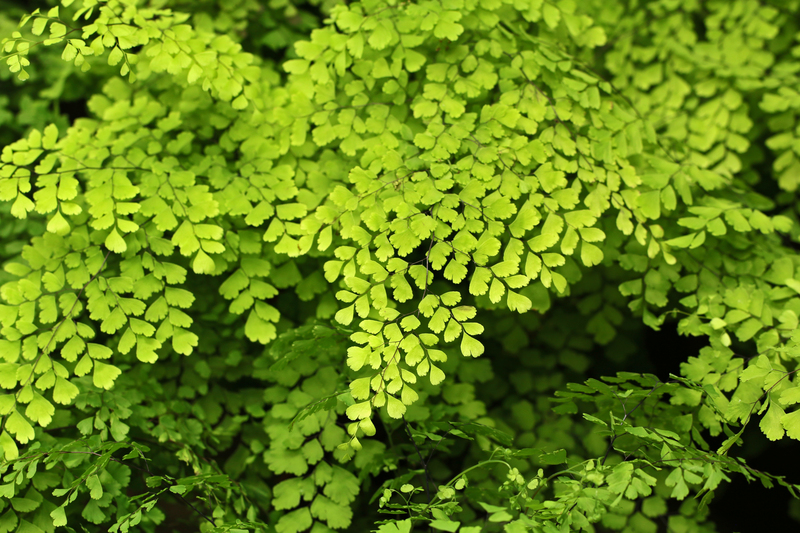9 Expert Tips Every Beginner Gardener Should Know
Posted on 01/07/2025
9 Expert Tips Every Beginner Gardener Should Know
Are you just starting your journey into gardening? Whether you have a backyard or a few pots on your balcony, growing your own plants is a fulfilling and rewarding experience. However, beginner gardeners often face challenges that can be easily avoided with the right guidance. This comprehensive guide covers expert gardening tips tailored for those just getting started. Discover actionable advice, common mistakes to avoid, and pro secrets for a flourishing first garden!
Why Start Gardening? Benefits for Beginners
*Gardening is more than just a hobby — it’s a pathway to a healthier, happier life.* New gardeners quickly realize the many advantages, such as:
- Physical health through outdoor activity and fresh produce
- Mental wellbeing thanks to stress reduction and mindfulness
- Eco-friendly habits like reducing food miles and supporting biodiversity
Whether you’re drawn to a vegetable patch, flower beds, or container gardening, these beginner gardener tips will help you plant with confidence and see real results.

1. Choose the Right Location for Your Garden
Find Your Garden's Perfect Spot
One of the most crucial steps for every new gardener is selecting the ideal spot for your garden. Plants need sunlight, airflow, and access to good soil or containers with proper drainage. Here’s what to consider:
- Sunlight: Most vegetables and flowers need at least 6 hours of direct sun daily. Observe your outdoor space throughout the day to identify sunniest spots.
- Accessibility: Make sure your garden is easy to reach for watering, weeding, and harvesting.
- Protection: Choose locations with some shelter from strong winds or heavy rain, especially if you live in a harsh climate.
2. Start with Easy-to-Grow Plants
Select Beginner-Friendly Plants
Success breeds enthusiasm! To avoid frustration, opt for plants that are resilient, low-maintenance, and quick to reward your efforts. Some excellent choices for novice gardeners include:
- Lettuce, radishes, and spinach - Fast-growing and perfect for small spaces
- Marigolds and zinnias - Vibrant flowers that thrive in most conditions
- Herbs such as basil, mint, and parsley - Useful, aromatic, and hardy
Visit a local nursery and ask for recommendations or check for labels that indicate best plants for beginners.
3. Understand Your Soil
Soil Quality is Key
"The right soil is the foundation of a thriving garden," say gardening experts. Get to know your soil by:
- Performing a soil test (available in garden centers or online) to check pH and nutrient levels
- Improving soil fertility by mixing in compost, aged manure, or organic matter
- Ensuring good drainage to prevent root rot - raised beds or pots with holes can help
Healthy soil means stronger, pest-resistant plants. Don’t skip this step!
4. Water Wisely
The Art of Proper Watering
One of the most common mistakes for new gardeners is improper watering. Both over-watering and under-watering can cause problems. Follow these expert guidelines:
- Check soil moisture before watering - stick your finger an inch deep; water only if it feels dry.
- Water early in the morning to minimize evaporation and fungal issues.
- Water at the roots, not the leaves, for best absorption.
- Avoid frequent light watering - a deep soak 2-3 times a week is better than a daily sprinkle.
5. Learn About Mulching
Benefits of Mulch for New Gardeners
Mulching is a simple yet powerful technique that can transform any garden. Applying a protective layer of organic material (like straw, bark chips, or shredded leaves) around your plants:
- Retains moisture, reducing the need for frequent watering
- Suppresses weeds, saving time and effort
- Improves soil quality as it breaks down
- Protects roots from extreme temperatures
Even a beginner gardener can master mulching - just keep mulch a few inches away from plant stems to prevent rot.
6. Feed Your Plants
Fertilizing 101
Plants need more than water and sunlight. Fertilizers provide essential nutrients not always present in soil. As a novice garden enthusiast, follow these simple rules:
- Start with compost - natural, gentle, and boosts most gardens
- If using packaged fertilizers, follow the instructions carefully to avoid burning roots
- Feed during active growth (spring and summer for most plants)
Overfeeding can do more harm than good, so moderation is key!
7. Control Pests and Diseases Naturally
Prevent Problems Before They Start
Every gardener faces challenges from pests and plant diseases, but harsh chemicals aren’t your only option. Try these natural gardening solutions for healthier plants:
- Encourage beneficial insects like ladybugs and bees
- Use companion planting (e.g., marigolds deter aphids)
- Inspect plants regularly for early signs of trouble
- Remove diseased leaves or pests by hand when possible
- Try organic sprays such as neem oil or insecticidal soap if necessary
An ounce of prevention is worth a pound of cure in the garden!
8. Stay Consistent and Patient
Gardening is a Journey
The best gardening tips for beginners often boil down to this: *be patient and consistent*. Plants take time to grow, weather can be unpredictable, and mistakes will happen. Keep these points in mind:
- Establish a routine - set reminders for watering, weeding, and checking for pests
- Don't give up after setbacks - all master gardeners started as beginners!
- Enjoy the process and celebrate small successes, like your first sprout or harvest
The garden rewards perseverance.
9. Continue Learning and Connecting
Grow Your Gardening Knowledge
Even the best gardeners admit they’re always learning. As a first-time gardener, your curiosity is your greatest tool. Here’s how to nurture it:
- Read gardening books, blogs, and seed catalogs
- Join local gardening clubs or online forums to ask questions and share stories
- Attend community workshops or take short gardening courses
- Document your garden's progress with a journal or photos
Connecting with other plant lovers will deepen your skills and inspire your creativity.
Common Mistakes Beginner Gardeners Should Avoid
Avoiding these rookie errors will put you ahead:
- Starting with too much, too soon - Focus on a few plants first
- Ignoring plant labels - Always read and follow guidelines for spacing, light, and water
- Overwatering or underwatering
- Neglecting soil health
- Forgetting about pests or weeds until they become major issues

Beginner Gardener FAQs
How do I start a garden from scratch?
Begin by choosing a sunny, accessible spot; test and improve your soil; and plant easy-to-grow crops or flowers. Start small and expand gradually as your confidence grows.
What tools does a new gardener need?
At minimum, you’ll need a trowel, watering can or hose, gardening gloves, and pruners. Expand your toolkit as needed based on your garden's size and your plant types.
How do I know when to water my plants?
Stick your finger about an inch into the soil. If it feels dry, it’s time to water. Morning is usually the best time for watering.
Is it better to start with seeds or seedlings?
Sowing seeds gives you more variety but requires patience and care. Seedlings (young transplants) are easier for beginners and often lead to faster results.
Conclusion: Grow Your Best Beginner Garden
Starting a garden may seem daunting, but with these nine expert gardening tips for beginners, you’re well on your way to creating a vibrant green space packed with color, flavor, and satisfaction. Remember to:
- Choose the right location
- Start with easy plants
- Build healthy soil
- Water effectively
- Use mulch
- Feed your plants
- Prevent and manage pests
- Stay patient and consistent
- Always keep learning
Gardening for beginners is an adventure filled with discovery and growth. With these expert tips, every novice gardener can enjoy success right from the start. Embrace the process, nurture your curiosity, and watch your little patch of the earth come to life!
Happy gardening!
Latest Posts
Conquer Weeds: 3 Essential Control Tips
9 Quick-Growing Hedges to Ensure Your Privacy
Top Gardening Essentials for Every Nature Lover

